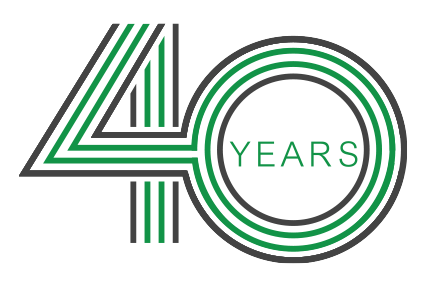Treasury Department reinstated the annual RMD for inherited Individual Retirement Accounts
ARTICLE | April 27, 2022
In February of 2022, the IRS and Treasury released proposed regulations that provide updated guidance for the SECURE Act of 2019, including significant changes for beneficiaries of inherited IRAs and 401(k) plans. This article provides an overview of the changes and the associated tax implications.
The backstory of the "Stretch IRA" strategy
A traditional IRA enables an individual to make contributions to the retirement account pre-tax and grow the funds tax-deferred. Income taxes are owed on distributions made in the future. In order to accelerate tax revenue, the IRS requires individuals to begin taking required minimum distributions annually once they reach age 72 (70 ½ if reached before January 1, 2020).
The owner of a traditional IRA can designate a beneficiary to inherit the IRA upon the owner's passing. In the original law, the beneficiary of an inherited IRA was required to take required minimum distributions, but the annual distribution amount was based on distributing the funds over the greater of the beneficiary's expected remaining life or the original owner's expected remaining life. This was known as a "stretch IRA" because it enabled the beneficiary to reap the benefits of tax-deferred growth from the IRA for an extended period of time.
The SECURE Act 10-year rule
The SECURE Act, which was signed into law on December 20, 2019, enacted a 10-year rule for distributions from an inherited IRA. Put simply, the rule says that individuals who inherit IRAs must take the full distribution of the account within ten years of the owner's death. So, if a grandmother passed away on January 1, 2022, and left her IRA to her granddaughter, that granddaughter would have to distribute all funds by December 31, 2032, the final day of the 10th year after her passing.
The SECURE Act was vague, especially in the language around the 10-year rule, and experts agreed that the 10-year rule did not impose required minimum distributions. In fact, in May 2021, the IRS clarified that minimum required distributions were not required under the 10-year rule. This enabled a beneficiary to determine how much to distribute each year, as long as all funds are distributed within 10 years.
The SECURE Act provided an exemption to the 10-year rule for "eligible designated beneficiaries." The exemption includes surviving spouses, disabled or chronically ill people, minor children of the owner under the age of 21, and finally, a beneficiary that was no more than a decade junior to the account holder. Eligible designated beneficiaries can continue to base distributions on the stretch IRA formula.
The proposed SECURE Act regulations
In February of 2022, the IRS issued proposed SECURE Act regulations that provided some clarity but reversed the IRS's position on the 10-year rule and required minimum distributions.
If the IRA account owner dies before having to take required minimum distributions, then the qualified designated beneficiary must adhere to the 10-year rule but is not required to take required minimum distributions each year.
If the IRA account owner dies after having to take required minimum distributions, then the qualified designated beneficiary must adhere to the 10-year rule and is required to take required minimum distributions for years one through nine.
There are several other related rules. For instance, if the beneficiary qualifies as an “eligible designated beneficiary”, then the stretch IRA rules apply. If the beneficiary is a spouse, then RMDs will be required, but don’t begin until the deceased would have had reached the required age for taking distributions. While this article focuses on the 10-year rule and RMDs, we suggest discussing the full scope of the new rules with your advisor.
The tax implications
Under the proposed guidance, if you inherited an IRA in 2020 and the owner was of age to take RMDs, you should have taken a minimum distribution in 2021 and will need to take distributions moving forward. But, earlier guidance from the IRS in May 2021 stated that a minimum distribution was not required.
The impact on taxes makes the rule change unwelcome for the average American. Unlike a ROTH IRA, which is after-tax dollars, distributions from a traditional IRA are treated as taxable income by the IRS, the same way that a biweekly paycheck would be. Unfortunately, the additional income from receiving the required minimum distribution may push a taxpayer into an unwanted higher tax bracket in any given year.
The new rules essentially accelerate the government's ability to collect tax revenue. Instead of enabling the beneficiary to determine when to take funds, the new guidance forces them to take a distribution each year and pay the related income tax.
Does the same rule apply to inherited 401ks?
Yes, the guidelines are nearly identical. For owners who pass away after 2021, beneficiaries must follow the same minimum distribution rules and empty the inherited account by the end of year 10. The same exceptions also apply to surviving spouses, minor children of the owner, disabled or chronically ill people, and people who are no more than 10 years younger than the owner.
The timing
The proposed regulations would apply to the 2022 tax year and beyond. However, the new guidance leaves many taxpayers wondering if they should have taken required minimum distributions in 2021 for an IRA or 401(k) they inherited in 2020. We suggest speaking with your advisor to better understand the guidance and determine the best course of action.
Contact us for help
This article provides an overview of the changes to inherited IRAs and 401(k) plans and is not a substitute for speaking with one of our expert advisors. If you are the beneficiary of an IRA or 401(k) or need assistance with your estate planning, please contact our office.
Let's Talk!
Call us at (509) 455-8173 or fill out the form below and we'll contact you to discuss your specific situation.
HMA CPA offers a full range of tax, accounting and consulting services for closely held businesses, their owners, and high net worth individuals. We value relationships and are committed to providing close, personal attention to our clients. Though our experience spans over 35 years in the accounting field, we also keep current with ongoing professional education so we can provide you with outstanding technical support and customer service.
For more information on how HMA CPA can assist you, please call (509) 455-8173.

